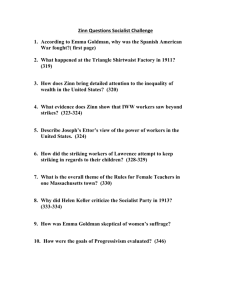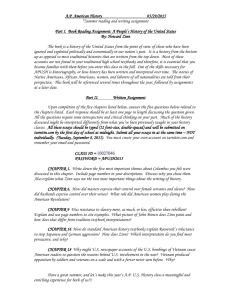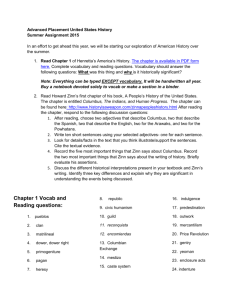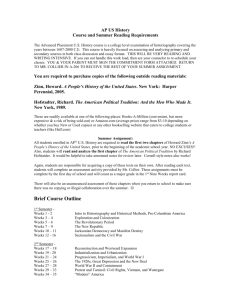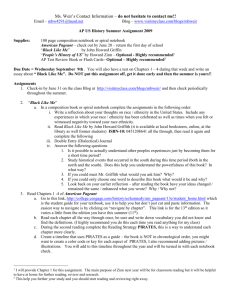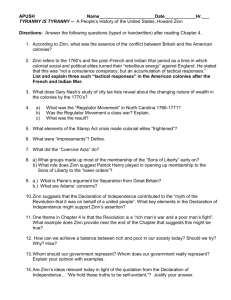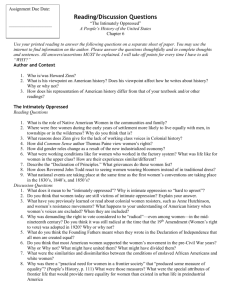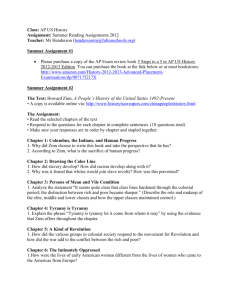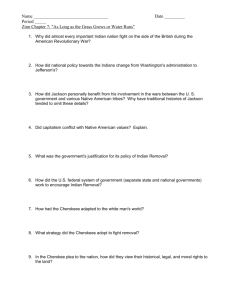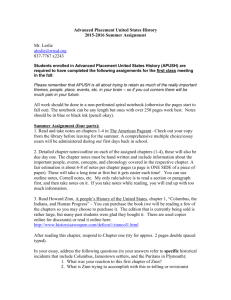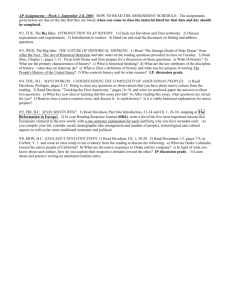Zinn Chapter 1 Example: Main Ideas: The Spanish showed extreme
advertisement
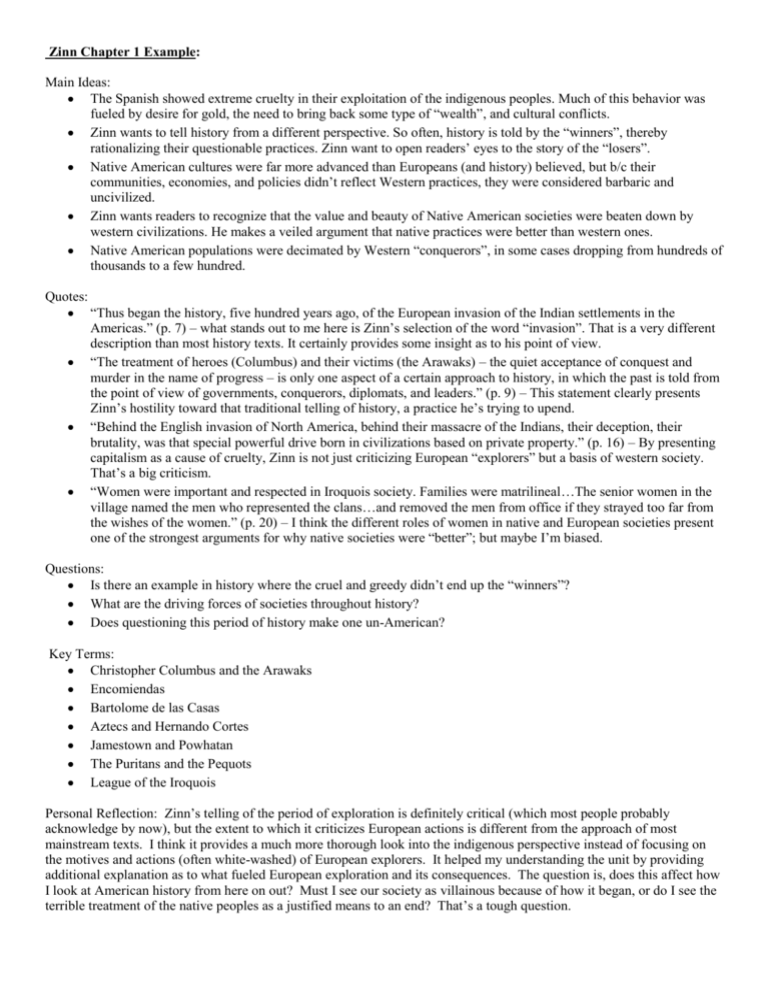
Zinn Chapter 1 Example: Main Ideas: The Spanish showed extreme cruelty in their exploitation of the indigenous peoples. Much of this behavior was fueled by desire for gold, the need to bring back some type of “wealth”, and cultural conflicts. Zinn wants to tell history from a different perspective. So often, history is told by the “winners”, thereby rationalizing their questionable practices. Zinn want to open readers’ eyes to the story of the “losers”. Native American cultures were far more advanced than Europeans (and history) believed, but b/c their communities, economies, and policies didn’t reflect Western practices, they were considered barbaric and uncivilized. Zinn wants readers to recognize that the value and beauty of Native American societies were beaten down by western civilizations. He makes a veiled argument that native practices were better than western ones. Native American populations were decimated by Western “conquerors”, in some cases dropping from hundreds of thousands to a few hundred. Quotes: “Thus began the history, five hundred years ago, of the European invasion of the Indian settlements in the Americas.” (p. 7) – what stands out to me here is Zinn’s selection of the word “invasion”. That is a very different description than most history texts. It certainly provides some insight as to his point of view. “The treatment of heroes (Columbus) and their victims (the Arawaks) – the quiet acceptance of conquest and murder in the name of progress – is only one aspect of a certain approach to history, in which the past is told from the point of view of governments, conquerors, diplomats, and leaders.” (p. 9) – This statement clearly presents Zinn’s hostility toward that traditional telling of history, a practice he’s trying to upend. “Behind the English invasion of North America, behind their massacre of the Indians, their deception, their brutality, was that special powerful drive born in civilizations based on private property.” (p. 16) – By presenting capitalism as a cause of cruelty, Zinn is not just criticizing European “explorers” but a basis of western society. That’s a big criticism. “Women were important and respected in Iroquois society. Families were matrilineal…The senior women in the village named the men who represented the clans…and removed the men from office if they strayed too far from the wishes of the women.” (p. 20) – I think the different roles of women in native and European societies present one of the strongest arguments for why native societies were “better”; but maybe I’m biased. Questions: Is there an example in history where the cruel and greedy didn’t end up the “winners”? What are the driving forces of societies throughout history? Does questioning this period of history make one un-American? Key Terms: Christopher Columbus and the Arawaks Encomiendas Bartolome de las Casas Aztecs and Hernando Cortes Jamestown and Powhatan The Puritans and the Pequots League of the Iroquois Personal Reflection: Zinn’s telling of the period of exploration is definitely critical (which most people probably acknowledge by now), but the extent to which it criticizes European actions is different from the approach of most mainstream texts. I think it provides a much more thorough look into the indigenous perspective instead of focusing on the motives and actions (often white-washed) of European explorers. It helped my understanding the unit by providing additional explanation as to what fueled European exploration and its consequences. The question is, does this affect how I look at American history from here on out? Must I see our society as villainous because of how it began, or do I see the terrible treatment of the native peoples as a justified means to an end? That’s a tough question.
